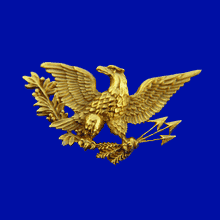Wednesday, August 29, 2012
Is Barack Obama a Tory?
Last week, a correspondent at Britain’s Spectator (not to be confused with the American Spectator) posed this seemingly nonsensical question. If Toryism--or more broadly, conservatism--has any meaning at all, obviously the answer is no. However, on deeper reflection, this question is a good starting point to explore President Obama's governing philosophy. Clearly Obama is no conservative, but what sort of man is he? Using British history as our point of comparison, it is clear that Barack Obama has much more in common with the Roundheads than the Tories.
The argument advanced in the piece is that "the goal of the Obama Administration has been the preservation of the status quo" and "minimally disturbing existing economic and political arrangements" which is falsely given as the core of "small-c" conservatism. This sounds like Burkean pragmatism, and while Edmund Burke is certainly an intellectual father of modern conservative thought on both sides of the Atlantic, he was a Whig and spent his political career opposing the Tories in pursuit of reform, especially religious and economic freedom for Catholics in Ireland.
Moreover, Burke argued that change is "the most powerful law of nature" and since it cannot be avoided, should be guided "by insensible degrees" to the best possible outcomes. Many modern-day conservatives accept this decidedly Whiggish maxim and are willing to make short-term compromises in order to gradually advance a principled agenda that strengthens individual rights, the family, and the role of faith in society. This is not what Obama has done.
Then-candidate Obama campaigned in 2008 on the now-tired slogan of "Hope and Change," which is to say, he did not merely accept change as inevitable, but actively sought to cause it--and by the most radical means possible. Indeed, Obama has been deeply antagonistic towards long-established businesses and civic institutions in a way which would horrify Burke. While being heckled by Occupy Wall Street protesters last year, he even said as much.
Rather than a Tory or even a Whig, the President's philosophy is frighteningly similar to the Puritan revolution lead by Oliver Cromwell. In particular, Obama and his supporters have engaged in an all-out attack on faithful Catholics and religious conservatives. While preaching "tolerance" and "choice," Obama's policies are in fact quite the opposite. Even the liberal wing of the Supreme Court recognized Obama's attack on freedom of religion went too far in the landmark Hosanna-Tabor case.
At the same time, the mob mentality of Obama's most ardent supporters is becoming more evident. Just this past month, we have seen a rash of vandalism against Chick-fil-A franchises due to the religious beliefs of the restaurant chain's founder. Meanwhile, a gunman attempted to murder the employees of a conservative non-profit while toting a backpack full of Chick-fil-A sandwiches. It is also worth noting that the Occupy Wall Street movement has repeatedly employed anti-Semitic rhetoric. To be sure, these are isolated actions of deranged individuals—-but for how long?
Insofar as Obama is using his power to attack the rights of religious people and to delegitimize freedom of worship and expression in the public square, he bears some of the responsibility for this disturbing trend towards unruly mobs and hateful violence. His radical governing philosophy of intolerance and coercion has been adopted by his supporters with increasingly disconcerting results. America is generally a peaceful and democratic society, but even we are not immune to outbreaks of political violence.
Burke himself bitterly opposed the French Revolution and watched with horror as the chaos quickly devolved into what we now call totalitarianism. As a community organizer from the mean streets of South Chicago, Obama may have fooled himself that he can control the mob to do his bidding, but this is a dangerous course. If he were really a conservative and a student of history, he would know that, as with Cromwell, it's easy to stir up a mob into an agitated frenzy, but it's impossible to stop the mob when heads begin to roll.
Tuesday, August 7, 2012
Are We There Yet?
With the ubiquitous nature of cellphones and global positioning satellites here on earth, we often take it for granted that it is now almost impossible to be truly lost. Short of leaving your cellphone behind and wandering off into an uncharted wilderness, one need only reach into a pocket to gain instant access to incredibly detailed maps and accurate coordinates. However, for the NASA Curiosity rover on Mars, things aren’t so simple:
Curiosity landed facing east-southeast within Gale Crater, with a heading of 112.7 degrees (plus or minus five degrees), and a few degrees of tilt. A Sol 1 overpass by Mars Odyssey will provide additional information on Curiosity's position and additional imagery. A first look at some color images taken just before landing by MSL's Mars Descent Imager also provided additonal [sic] information on the rover's precise location.
There are a handful of man-made satellites in orbit around Mars, but none has the capabilities of the GPS constellation in orbit around earth. Instead, like mariners in the age of sail, NASA scientists must measure the angles between different landmarks in a process known as triangulation to calculate the exact position of the rover.
The next time you’re looking at real-time traffic updates on your phone while searching for an alternate route, consider how lucky you are. Even after a breathtakingly complicated journey between the planets that would not have been possible without the advancements of 21st century rocket science, the incredible machines on the surface of Mars must rely on ancient principles of navigation to get around.
Subscribe to:
Posts (Atom)



